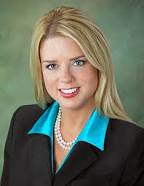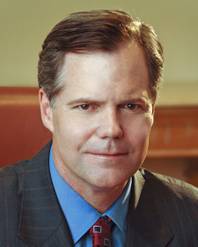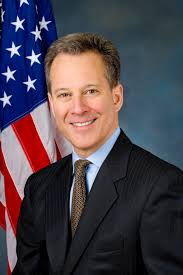A relatively obscure dispute in the Florida panhandle could have huge ramifications for the state’s casino industry. Four years ago, voters in Gadsden County approved slot  machines for Gretna Racing, a joint venture of two Tallahassee lobbyists and the Poarch Bank of Creek Indians. A favorable ruling by the Florida Supreme Court would be a windfall for Gretna, an overwhelmingly African-American community dogged by high unemployment and low wages. It would also open up a jailbreak for as many as seven other counties that are itching to convert their jai alai frontons and race tracks into racinos.
machines for Gretna Racing, a joint venture of two Tallahassee lobbyists and the Poarch Bank of Creek Indians. A favorable ruling by the Florida Supreme Court would be a windfall for Gretna, an overwhelmingly African-American community dogged by high unemployment and low wages. It would also open up a jailbreak for as many as seven other counties that are itching to convert their jai alai frontons and race tracks into racinos.
Not least, it would blow sky-high the state’s compact with the Seminole Tribe, meaning that Gov. Rick Scott (R) — whose office has exuded indecision over what constitutes a ‘parimutuel’ event — could kiss billions of dollars of revenue goodbye. The decision will hinge, in part, on the question of whether the Florida Constitution limits casino gambling to Miami-Dade and Broward  counties. There is also the lesser query of whether Gretna Racing constitutes a valid parimutuel. According to the Miami Herald, “State statutes require that for a facility to be entitled to card rooms it must be considered a licensed pari-mutuel. And for it to be granted a slots license, it must have conducted live racing or jai alai events for two years.” Gretna Racing is too short of a track even for quarter-horse races, substituting so-called barrel racing, which Scott’s office has vacillated upon its validity as parimutuel racing. When that was disallowed by a court, two-horse “flag-drop” racing was substituted. Although characterized as “more evocative of an Our Gang comedy short than an undercard at Pimlico,” the sport has withstood court challenges to date.
counties. There is also the lesser query of whether Gretna Racing constitutes a valid parimutuel. According to the Miami Herald, “State statutes require that for a facility to be entitled to card rooms it must be considered a licensed pari-mutuel. And for it to be granted a slots license, it must have conducted live racing or jai alai events for two years.” Gretna Racing is too short of a track even for quarter-horse races, substituting so-called barrel racing, which Scott’s office has vacillated upon its validity as parimutuel racing. When that was disallowed by a court, two-horse “flag-drop” racing was substituted. Although characterized as “more evocative of an Our Gang comedy short than an undercard at Pimlico,” the sport has withstood court challenges to date.
In creating a legislative loophole to qualify Hialeah Racetrack for slots in 2009, lawmakers created a breach through which every county in Florida could wriggle. Attorney General Pam Bondi (above) is trying to convince the high court that such was not the Legislature’s intended endgame. But perhaps the Supremes will agree with gaming attorney — and former lawmaker — Steve Geller, who says, “As one administrative law judge said, it may be a scam but it’s a legal scam.”
* Correction: The revamped version Monte Carlo, Park MGM will be entirely managed by MGM Resorts International, not jointly with Sydell Group as previously reported. MGM CEO Jim Murren said of the makeover, “Some of these lifestyle hotels are a little too sexy. We’re going for more romance than sexy — more soft, more  comfortable, more residential.” (Shades of Delano.) The goal is to bring Park MGM ADRs into line with those of Wynncore and Cosmopolitan … easier said than done.
comfortable, more residential.” (Shades of Delano.) The goal is to bring Park MGM ADRs into line with those of Wynncore and Cosmopolitan … easier said than done.
Legal, online poker still looks like an uphill push in New York State, but MGM is putting its shoulder to the wheel. “We applaud the Senate Finance Committee’s vote to create a safe, legal environment for online poker through legislation that will generate tens of millions of dollars in revenue for taxpayers, and create open and fair opportunities for all providers of online poker,” wrote MGM General Counsel John McManus, in an attempt to lend momentum to the i-poker push. With its acquisition of Borgata, MGM obtains a potent i-gambling presence in New Jersey, leading to speculation that it may also push for additional interstate Internet gambling compacts. (Currently, Nevada and Delaware have the only one.)
In the New York battle, Sheldon Adelson has thrown his toupee into the ring among the ‘antis,’ pitting him against MGM and Caesars Entertainment. In a not-unrelated conflict, the churchy set is fighting against daily fantasy sports, while MGM and Caesars oppose it on the grounds that it would treated more favorably than Internet gambling (which it is, at the end of the day). Conceded Assembly Speaker Carl Heastie of DFS, “It’s something that people look more as entertainment, even though it is some form of gambling.’’
While state Attorney General Eric Schneiderman holds that DFS is illegal, he’s declared  neutrality in the legislative scrum. DFS operators — as many as 36 — are focused on the potential entry fees, which may be prohibitive to small operators. Yahoo wrote, “Fee structures must be equitable, supportive of competition and avoid building insurmountable barriers to entry into the marketplace.’’ Pushback against DFS uses the argument that it’s a ‘gateway drug’ for other forms of wagering. “It’s actually a Trojan horse for much bigger Internet gambling,” said Coalition Against Gambling in New York Chairman Stephen Shafer, whose organization has a far greater history of failure than success. His odd bedfellows include the Empire State’s racetracks, which frown upon DFS as unwelcome competition. The latter group could mollified if lawmakers force DFS operators to partner with parimutuels. “If it’s going to be done successfully – provide employment and support education – you need to have a limited number of facilities and a high tax rate,’’ says track owner James Featherstonhaugh. His allies including Genting, owner of mega-lucrative Resorts World New York, at Aqueduct race track.
neutrality in the legislative scrum. DFS operators — as many as 36 — are focused on the potential entry fees, which may be prohibitive to small operators. Yahoo wrote, “Fee structures must be equitable, supportive of competition and avoid building insurmountable barriers to entry into the marketplace.’’ Pushback against DFS uses the argument that it’s a ‘gateway drug’ for other forms of wagering. “It’s actually a Trojan horse for much bigger Internet gambling,” said Coalition Against Gambling in New York Chairman Stephen Shafer, whose organization has a far greater history of failure than success. His odd bedfellows include the Empire State’s racetracks, which frown upon DFS as unwelcome competition. The latter group could mollified if lawmakers force DFS operators to partner with parimutuels. “If it’s going to be done successfully – provide employment and support education – you need to have a limited number of facilities and a high tax rate,’’ says track owner James Featherstonhaugh. His allies including Genting, owner of mega-lucrative Resorts World New York, at Aqueduct race track.
The Buffalo News reports that solons could try to solve these myriad problems by rolling them into omnibus legislation. It’s called “the big, ugly bill.” That sounds about right.

